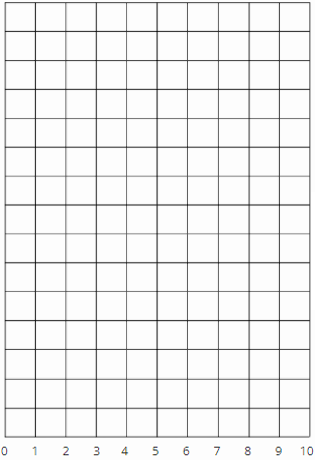Keeping drinks warm
This task is about designing and carrying out a fair test.
Which cup kept the water hot? With the materials you are given, design a investigation to find out which cup will keep water the hottest over 10 minutes, and how the water temperature changes over 10 minutes.
| a) | i) |
Write a plan for your investigation here. When you have written your plan, give it to your teacher to check.
|
|
| ii) |
How often will you measure the water temperature? _______________
|
||
| iii) |
Which cup do you think will keep the water the hottest? _______________
|
||
Plan checked by teacher? 
| b) | Carry out your investigation. Record your results in this table. You will need to measure the water temperature before you start. This will be 0 minutes for your data and on your graph. | |||||||||||||||||||||||||||||||||||||||||||||||||||||||||||||||||||
|
||||||||||||||||||||||||||||||||||||||||||||||||||||||||||||||||||||
| c) |
On this grid draw a line graph to show your results for all 4 cups. You will need to complete the key and the axes.
|
|||
|
Temperature (oC)
|
The Temperature Change of Water in 4 Different Cups

Time (minutes)
|
 |
||
| d) |
Write a conclusion for your investigation.
|
|||

